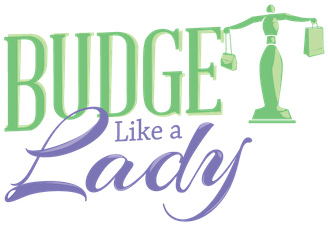4 Money Options When You Have No Emergency Fund

Is My Side Hustle Idea Good Enough to Make REAL Money?
January 7, 2019
Does Your Ego Cost You Money? Mine does…
March 15, 2019Estimated Reading Time: 4 minutes
There are times when BIG emergencies happen that were completely unexpected such as sudden loss of income. Currently, there is a government shutdown and many families have no income right now. If you are ever in a situation when you lose your job or unexpected medical emergency leaves you without income for an extended period of time, what do you do? How can you make ends meet when you have no emergency fund?

What is an emergency fund?
An emergency fund is the money you save for emergencies. This amount should be between 3 to 6 months of expenses.
I know saving 3 to 6 months of expenses is not easy and it takes time. What if you experience loss of income while you are saving up for your emergency fund?
I have come up with a few solutions for a plan B. These solutions do include additional debt or affects your retirement so only do this if you are out of all other options.
1) Home Equity Line of Credit (HELOC)
If you are a homeowner with equity in your home, getting a home equity line of credit (HELOC) from the bank could be a good option.
A HELOC is a bank loan where you use your home as collateral. HELOCs can be risky because they are at the bank’s discretion. If the bank decided to cancel the loan at any time, you must repay the loan right away, so I suggest coming up with a payment plan BEFORE you apply for a HELOC.
2) Roth IRA Withdrawal
If you have a Roth IRA, which is a specific type of retirement account, you can withdraw a certain amount without penalties.
If you are under 59 ½, you are ONLY able to withdrawal the amount that you put into the account. If you need to withdrawal more than what you put in it (interest earned), then there are steep penalties.
If you are over 59 ½, you can withdraw as much as you want as long as your account has been opened for at least 5 years.
Deciding to withdrawal from your Roth IRA should be consulted with your family and financial professional.
3) Credit Cards
Using credit cards to float you through an emergency is risky but it’s a solution. I don’t recommend opening new credit card accounts, you should just use the ones you already have. I currently have a credit card that I use every month and pay off in full every month. If times got hard, I would use the credit card to float my family’s needs.
The key is to create a debt repayment plan. Credit cards come with a high interest rate and the minimum balance due can change every month. Keep this in mind if you are going to use a credit card in an emergency.
Without a payoff plan, you will be digging a hole that you can’t get out of.
4) Withdrawing from Investment Accounts
When you are in a true emergency, everything is up for grabs when it comes to providing for your family. Start with withdrawing from regular brokerage accounts. There are usually no penalties, but you do have to pay taxes on the interest earned. Your accounting professional will help you navigate the taxes.
Other investment accounts you could access are your retirement accounts. I recommend you withdrawal from these last. Not only do you have penalties for early withdrawal but the money you withdrawal now could affect your retirement account by hundreds of thousands of dollars in the end.
As always, talk with your financial professional to see what the best option for you would be.
I know in times of emergencies, especially if you suddenly lost your income, things can seem very dark and dim. I wanted to provide you with other options to get through an emergency to take away the financial stress and anxiety that you might be feeling during difficult times.
If you found this article helpful, please share.

